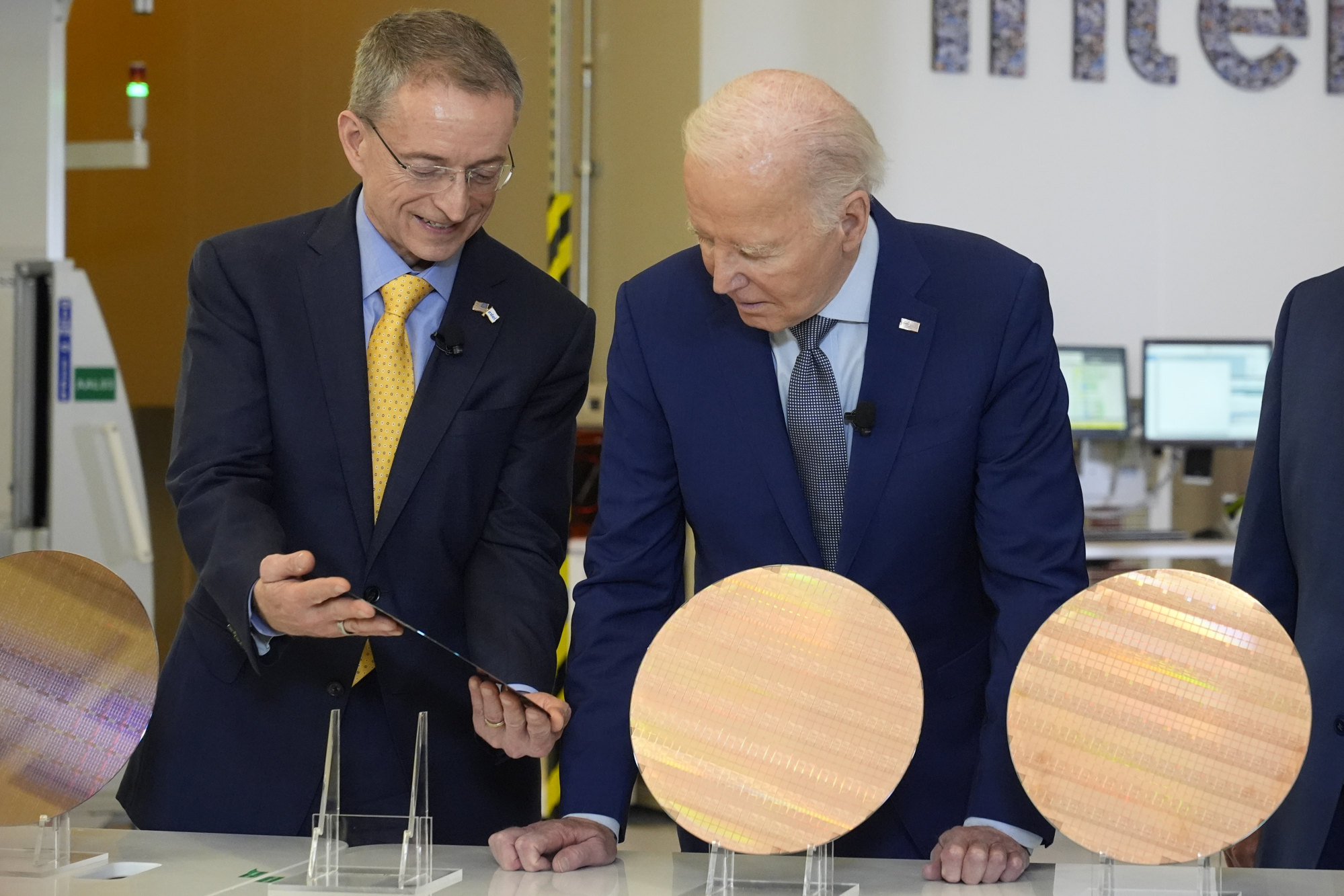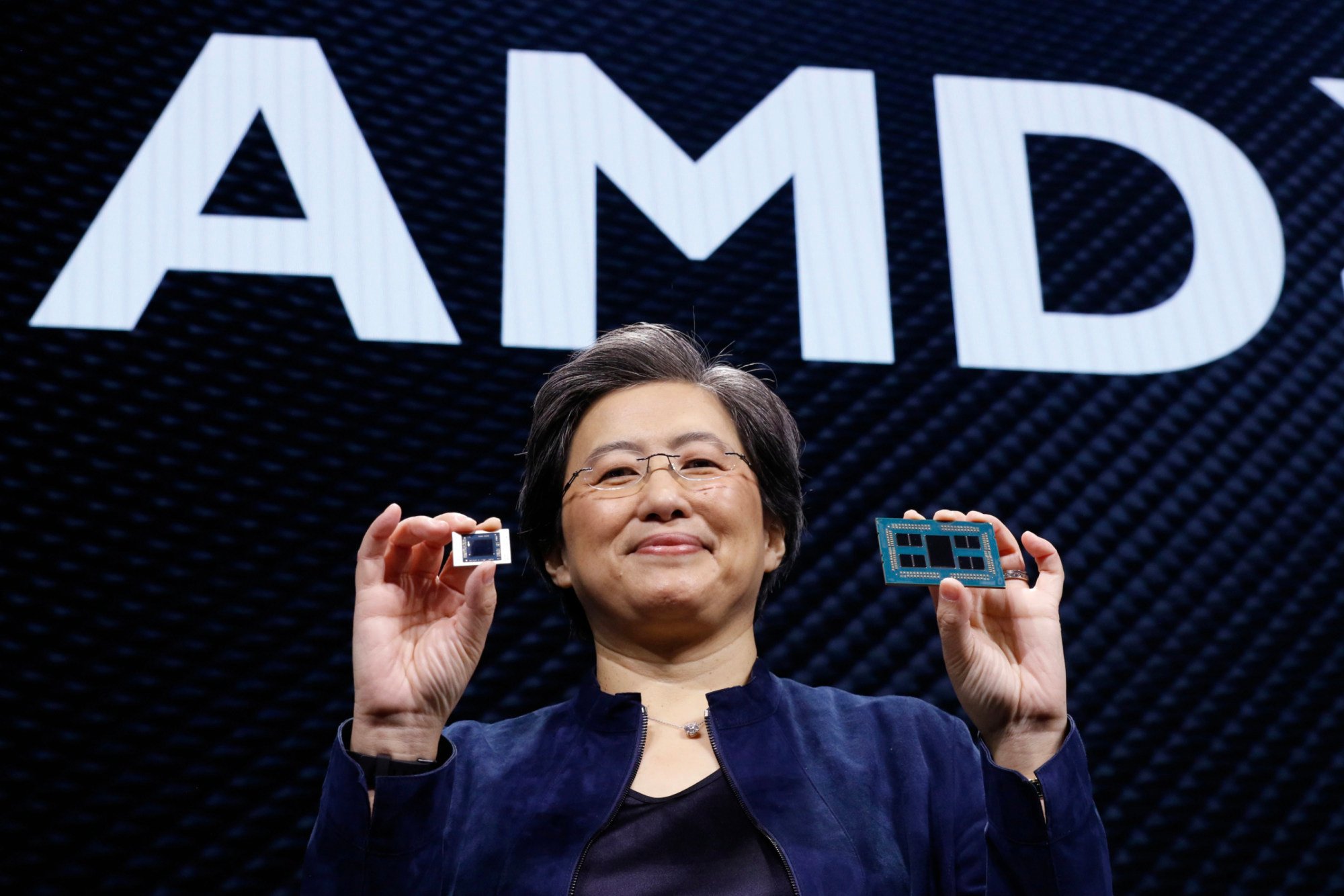The road to AI breakthroughs is paved with semiconductors and servers, many of which are manufactured or assembled in Taiwan.
“Last year, we were already on a roll because of AI, and this year, we're exploding because AI is accelerating,” said James C. F. Huang, chairman of the Taiwan External Trade Development Council (TAITRA), which runs COMPUTEX. “We're like a giant magnet.”
“Only in Taiwan”
Taiwan's most valuable company has also been courted by global superpowers, with the United States and Japan spending billions of dollars in subsidies and support to help TSMC build chip factories in Taiwan.
But TSMC is only the most visible part of a vast semiconductor ecosystem that helps customers around the world meet their chip needs in one place. Taiwan is also leveraging its depth of vital expertise in what it calls its technology diplomacy policy.
At last year's Computex media event, Nvidia's Huang unveiled a range of the company's AI hardware, from its H100 AI chip to integrated server rack modules and proprietary technology that allows multiple components to function like one unified computer.
Asked if all those parts are made in Taiwan, Huang said yes. Taiwan's advantage has a lot to do with the fact that neither Intel nor Samsung Electronics can match TSMC's technological leadership and manufacturing reliability.
Jensen Huang's arrival in Taipei a week before Computex drew the usual cheers of a home-grown rock star CEO, and sent shares on the Taipei Stock Exchange to an all-time high. The Taiwanese company's shares were also boosted by reports that Nvidia was partnering with chipmaker MediaTek on AI processors.
TAITRA's Huang said the AI hardware supply chain, from chips to motherboards to server assembly, is all concentrated in Taiwan, making it an efficient one-stop shop for major tech companies such as Alphabet Inc.'s Google, Amazon.com Inc., Microsoft Corp. and Meta Platforms Inc. to purchase hardware.
“That's why they all had to come. You couldn't find this in Seoul, San Francisco, Las Vegas, Berlin or Singapore. Only in Taiwan,” James Huang said.

The emergence of AI PCs
Until recently, Computex was colloquially known as the “Wintel” showcase, reflecting the fact that most PCs ran Microsoft's Windows and Intel. Microsoft's choice to move to Arm-based Qualcomm chips for its latest batch of partner laptops may finally mark a long-awaited shift away from Intel.
Apple made a similar move by switching to its own silicon chips, resulting in better battery life and thermal performance for its MacBooks. Qualcomm will have to meet high expectations.
Both Su and Gelsinger will face tough challenges as they play catch-up: Gelsinger's Intel is losing PC-making partners after Apple's sales plummeted, and it has yet to lay out a detailed plan for regaining lost ground in the AI race, while AMD continues to lag Nvidia in AI training accelerators.

Arm has sought to position itself as a leader in on-device AI, including Qualcomm's AI-powered PCs and upcoming smartphones. The company's shares have risen more than 140% since opening in September.
TAITRA started Computex as a computer parts exhibition in 1981. Over the years, the exhibition has evolved into a showcase for the latest trends in areas such as mobile technology, data center hardware, and now AI. More than 1,500 companies and over 50,000 visitors are expected to participate.

